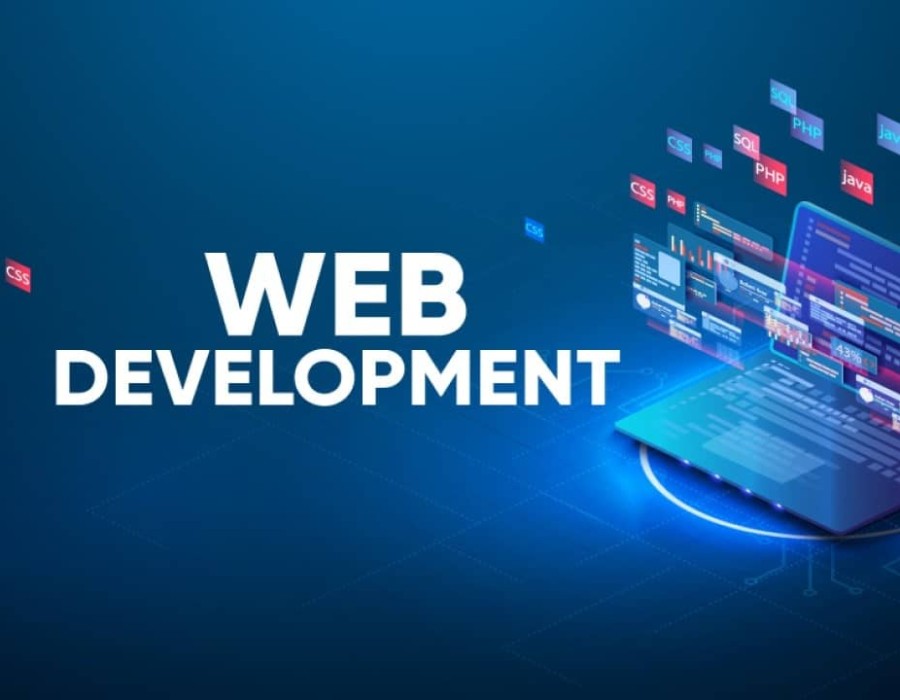Web development is a dynamic and rewarding field, offering diverse opportunities for individuals looking to build a career or enhance their technical skills. Whether you’re just starting or have some experience, selecting the right web development course can pave the way for your growth.
In this article, we’ll explore the various types of web development courses, their benefits, and the skills they offer, catering to learners of all levels—from beginners to advanced professionals.
Why Enroll in a Web Development Course?
The Importance of Web Development Skills
In today’s digital age, websites are crucial for businesses, organizations, and individuals. Web developers are the backbone of this digital revolution, making web development a highly sought-after skill. Enrolling in a web development course helps you acquire the technical knowledge required to build and maintain modern, responsive, and functional websites.
Benefits of a Web Development Course
- Structured Learning: Provides a systematic way to master web development.
- Hands-On Experience: Courses often include projects that allow learners to apply their skills.
- Career Advancement: Prepares you for roles in web development, freelancing, or even entrepreneurship.
- Stay Updated: Learn about the latest tools, frameworks, and best practices.
Types of Web Development Courses
Beginner-Friendly Courses
If you’re just starting, a basic web development course is perfect for building foundational skills. These courses typically cover:
- HTML and CSS: The building blocks of any website.
- JavaScript: Adds interactivity and functionality to websites.
- Responsive Design: Ensures websites work seamlessly across devices.
Intermediate Courses
For learners with a basic understanding of web development, intermediate courses focus on expanding skills, including:
- Front-End Frameworks: Learning tools like Bootstrap or React.
- Version Control Systems: Introduction to Git and GitHub for collaboration.
- APIs: Understanding how to work with external data sources.
Advanced Courses
Advanced courses are designed for professionals looking to specialize. These courses often include:
- Back-End Development: Covering server-side programming languages like Node.js or PHP.
- Full-Stack Development: Integrating both front-end and back-end technologies.
- Cloud Integration: Deploying applications on cloud platforms.
Key Topics Covered in Web Development Courses
1. Front-End Development
Front-end development focuses on the user-facing aspects of a website. Courses in this category teach you how to design visually appealing and user-friendly interfaces using:
- HTML, CSS, and JavaScript.
- Frameworks like React or Angular.
- Responsive design principles.
2. Back-End Development
Back-end development deals with the server, databases, and application logic. Courses in this domain cover:
- Server-side languages such as Node.js, Ruby, or Python.
- Database management using MySQL, MongoDB, or PostgreSQL.
- API creation and integration.
3. Full-Stack Development
Full-stack courses combine front-end and back-end skills, offering a holistic approach to web development. Topics include:
- Front-end frameworks.
- Server-side programming.
- Deployment and maintenance of web applications.
How to Choose the Best Web Development Course
Define Your Learning Goals
Determine whether you want to focus on front-end, back-end, or full-stack development. This helps narrow down your options.
Check the Course Content
Ensure the course covers essential topics relevant to your skill level. A good web development course in Pakistan will provide a balance between theoretical concepts and practical applications.
Look for Project-Based Learning
Courses with real-world projects allow you to apply your skills and create a portfolio that showcases your expertise.
Consider Industry-Relevant Skills
Stay updated with in-demand skills like React, Node.js, and cloud computing to remain competitive in the job market.
Advantages of Learning Web Development
Career Opportunities
Web development skills are highly valued, offering roles such as:
- Front-End Developer.
- Back-End Developer.
- Full-Stack Developer.
- UI/UX Designer.
Freelancing and Remote Work
With web development expertise, you can work independently, take on freelance projects, or join remote teams.
Continuous Learning
The field of web development evolves rapidly, giving you opportunities to upskill and explore emerging technologies.
Conclusion
Choosing the right web development course is crucial for building a successful career in the tech industry. Whether you’re a beginner exploring the basics or an advanced learner aiming to master full-stack development, there’s a course tailored for your needs. By focusing on your goals, skill level, and preferred learning style, you can find a course that empowers you to create impactful web applications and opens doors to endless career opportunities.





Comments